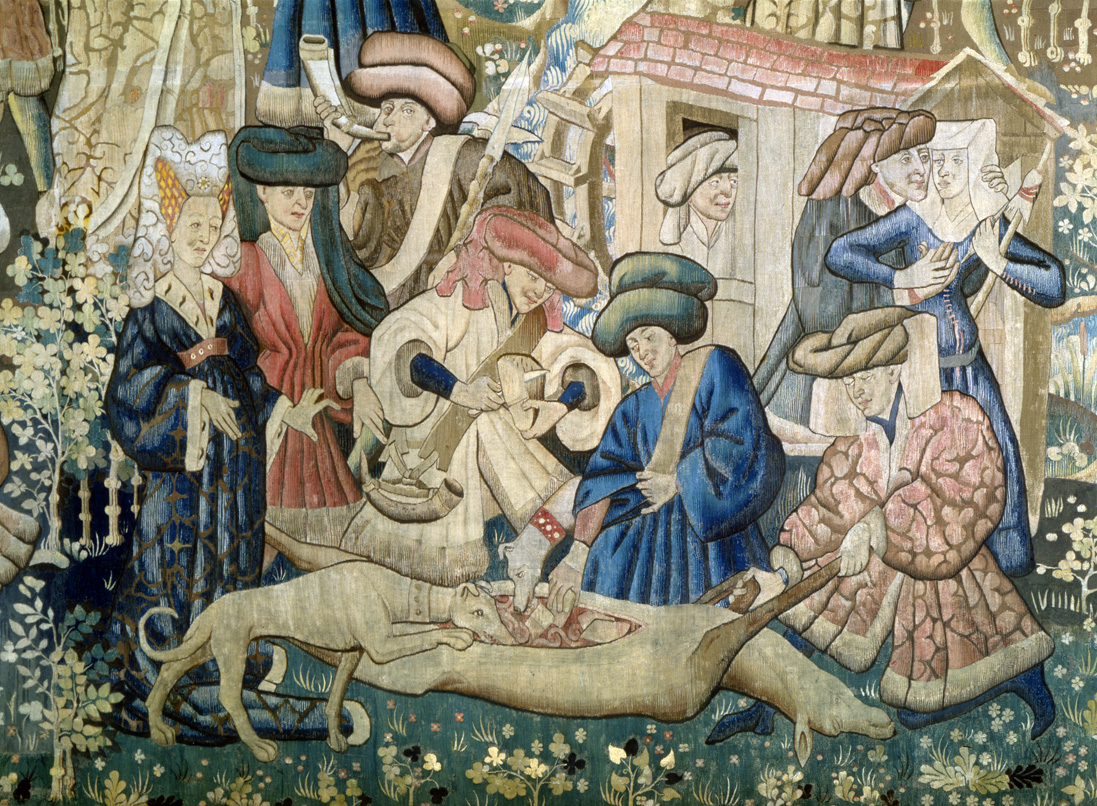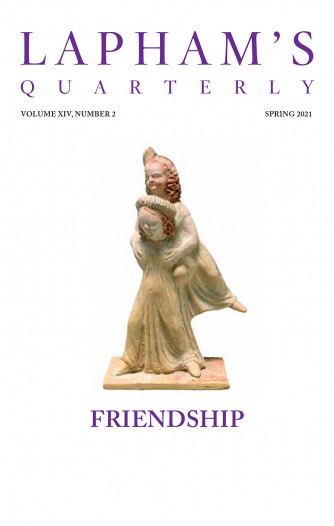I cannot but bless the memory of Julius Caesar, for the great esteem he expressed for fat men and his aversion to lean ones.
—David Hume, 1751Hangover Cure
The red badge of menudo stains.
The mescal night inspires you to get up on an early Sunday morning, hot Texas sun shining, making you crazier than the hangover your brain kisses. You hear yourself gasp, “¡Menudo! ¡Mama Menudo!” You must go to La Paloma Café and wave your pained face over a big steaming bowl of hot, quivering chunks of menudo. It is an emergency. Your soul calls for it, prays to it, waits for the red spirit of the menudo God to bless you and save you from the big mescal death.
You know menudo is the greatest thing anyone has ever sunk his teeth into. Nothing else comes close. Nothing else forces you to get into your car to drive a couple of miles down Paisano Street on a day when everyone else is in church praying. They listen to the Padre whose church sells menudo in the dining hall after la misa. Los señores y señoras, sus hijos, los vatos—they all pray first before thinking of eating menudo.
Not you. Your stomach moves like a dying river, a settling of flowing juices needing fresh slices of cow tripe to rise again and be reborn, putting life back into your existence, the magical source of survival in the desert.
You enter La Paloma because Mama Menudo is waiting, the sweet smell of a Mexican restaurant dampening your head. You are glad to see the place is nearly empty. The only other customer is an old Mexican sitting heavily at the counter, his huge body pressing into the stool, a bright cloud of steam rising from the bowl of menudo he hugs with thick hands.
Sylvia, the young waitress, knows what you want. She spots the menudo gleam in your red eyes and smiles beautifully at you. “¿Café y un plato de menudo?”
“Si, por favor.” You smile back, the smell of sizzling chorizo and fresh tortillas sprinkling through your nose, preparing you for the taking of the holy food, a transcendence you have tried to describe to your friends—a state of menudo mind you share with your family, and with only a few converted friends.
Sylvia takes your order and you wait, this period very important, a silent oath of patience calming your heart to ease the hangover. The old man is hunched over his bowl. John F. Kennedy smiles at you from his portrait above the door. The painting of a pigeon, la paloma, reflects over the long mirror that stretches the length of the cafe.
Sylvia brings the silverware and the revolving cup holder, each container holding the magic ingredients that are part of the ceremony. You look into the cup of freshly cut onion, glad to see it is as full as the cups of oregano, chili piquin, and lemon slices. You set it on the right side of the table, the place it must always be. As you spread your arms over the table, Sylvia comes out on cue with the smoking bowl of menudo.
You hear the bells of the church ring down the street as she sets the offering before you. “Gracias.” She leaves the bowl to steam into your eyes, knows you must eat alone, and quickly pours the coffee. You wait for her to leave.
The ritual begins. Two spoons of oregano flake into the bowl. The menudo is finely cut this morning, thin square strips floating among the posole. The soup is a dark red. You know it is a message from Mama that this mixture comes from a hot chili. Two spoons of chili piquin follow spoons of onion bits. The thing looks like a collage of chili, meat fat, jello, and black and green grains that emerge from the oregano. An innocent, ignorant person would say it looks like dog vomit and leftover cooking grease! But you love it and that person will never know the meaning of life, never understand why eating Mama Menudo is wild ecstasy and greedy pleasure—and most of all—it saves your life!
You slurp it like an anteater slurps ants, like a vacuum cleaner slurps dirt, like a monkey eats a banana, like a man slurps himself into sleep to wake up in search of his mama. Your right hand boasts of great skill. It digs spoonfuls of menudo straight into your mouth. The stuff is hot. You sigh as the chunks burn your tongue on their way down your throat. It does not take long. It never can. No one takes his time eating menudo. It is a creation of consumption, a snortling and grinding of the senses. The chili makes your eyes water, your ears pop, and it magically takes away the hangover. Your pupils blossom awake. Your heart beats proudly into the world. Your stomach flips awake like a dog that spots a cat and sprints for it!
It vanishes in a final gulp. A thin film of red grease that looks like blood glitters over the inside of the empty bowl. You touched the coffee only twice. You came up for air once. Your nose runs. You are safe and happy. Something moves inside you. You sit still for a few moments, arms resting quietly on the table. A huge burp tries to leap out of you. You hiss it through your teeth. Sylvia appears a final time to see that everything has fallen into place. At the cash register, you pay the dollar fifty. As she counts the change, you pull your pants higher at the waist and see the old man waddle toward you, his ancient body having accepted grace from Mama Menudo as boldly as you have.

Deer hunt, from the Devonshire Hunting Tapestries, Netherlands, c. 1445. Victoria and Albert Museum, London.
Sylvia gives you the change. As you tip her, the old man stands behind you to pay. You turn to say “Buenos dias,” and your eyes are filled with the color he wears on his gray shirt, the red badge of courage. A couple of menudo stains shine on his chest and chin.
“Yes,” you cry in your heart, “this man knows.” He is one of Mama Menudo’s lost sons who has returned. You wait in the morning sun for the old man to step out of La Paloma. Standing by your car, you watch him move slowly down the sidewalk. He pauses at the corner, turns around to face you. He raises his right arm slowly and points a friendly finger at you. He smiles and crosses the street as you climb into your car. Before starting the engine, you look down at your T-shirt. It is a clean white, not a single drop on it. You look at the doorway of La Paloma and something moves in your stomach, tells you to come back to reclaim the red badge of menudo stain and wear it on your chest.
© 1992 by Ray Gonzalez. Used with permission of the author.

Ray Gonzalez
“Mama Menudo.” Poet, short-story writer, and essayist, Gonzalez was born and raised in El Paso, came under the influence of Pablo Neruda and Robert Bly at a young age, and later served as the editor-in-chief of La Voz, Colorado’s Latino newspaper. He has taught English at the University of Minnesota since 1998.
